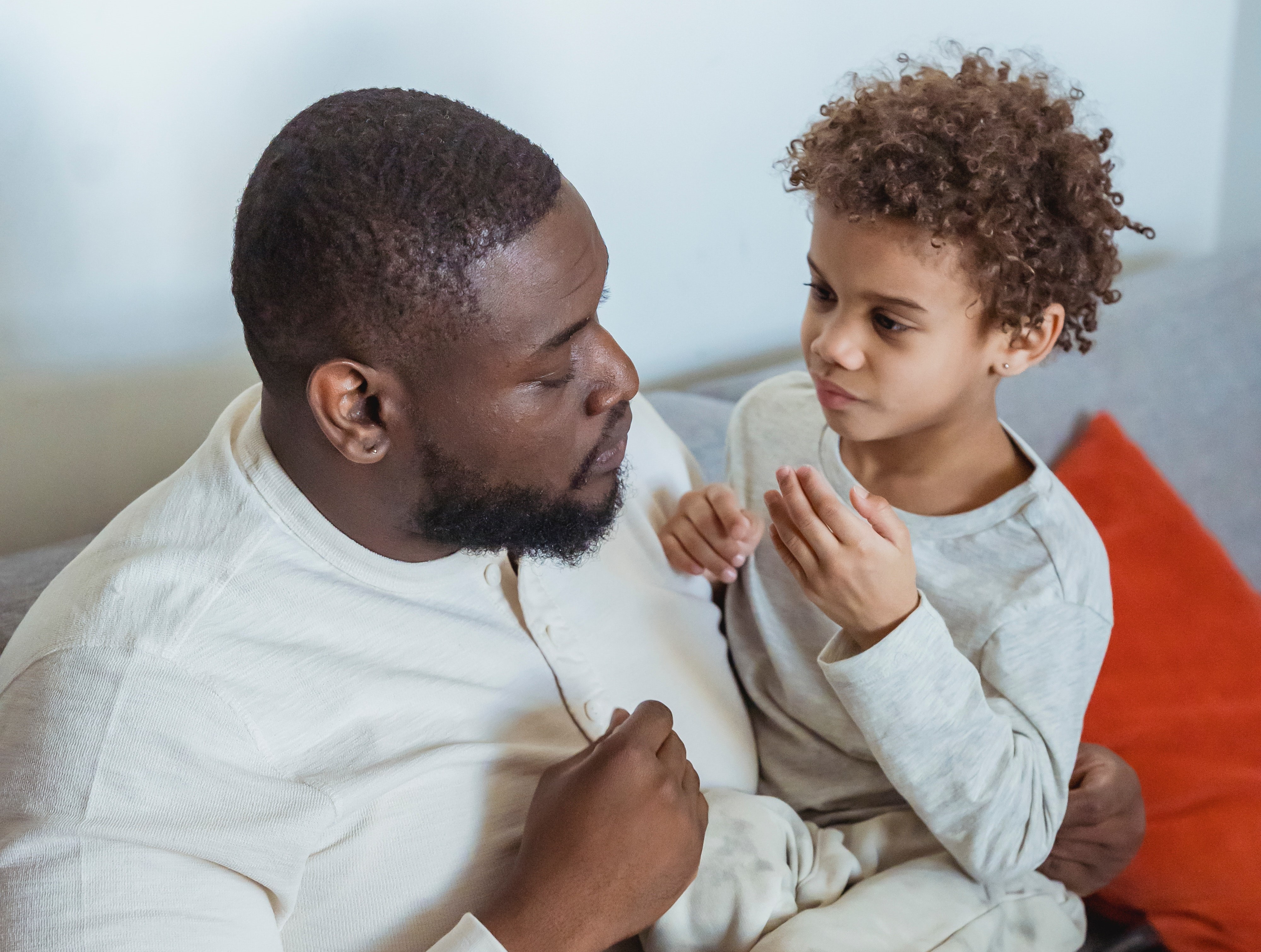Talking About Death with Your Child

Talking about death with your children may be difficult as they may react and deal with it differently. Depending on their age, they might have different views and understanding on what death means. Nevertheless, having a discussion about death with them is a form of support that can ease your children and help them to cope positively when it happens to their loved ones.
Here are some ways to help your children understand about death:
1. Prepare: Talk about death as a part of normal conversations
Talking about death and loss as a daily topic in your household turns out to be important as it will help your children understand better about the concept of how life can be over. You can try to bring up the topic with simple examples, like showing them a dead insect or a rotten fruit. Even a bubble that bursts can make them see how all things come to an end. Use simple words to explain how they are no longer living and won’t be able to come back again. This is very important to explain as the permanence of death is usually something that children hardly understand. Talking more about death and what it means can help ease the discomfort, fear, and confusion your children might have when it happens to their loved ones.
2. Be honest and direct
When someone close to your child has passed away, whether it’s a family member, a friend, or a pet, it is better to share the news to them as soon as you can. Remember to use simple words, be calm and caring, but also be honest and direct about it. For example, you can try saying something like “I have some bad news to tell you, your grandfather died this morning, that means his body has stopped working, so we won’t be able to see him again and there’s nothing we can do about it.” You can practice on what you are going to say, then find a quiet place to talk to your child. As you deliver the news, speak slowly and give some time for them to process the information to ensure they understand. Try to answer any questions your child might have and comfort them as you speak. Some children can be worried that it’s their fault someone died, so you should reassure them that they have done nothing wrong and did not cause someone’s death.
3. Avoid the cover up
It can be hard for parents to share bad news and use direct language to children, but it’s best that they know the truth so they can cope better. Therefore, you should avoid saying things like “He is gone to sleep forever and he won’t wake up” as it might cause confusion and they can get frightened by the idea of sleeping because they’re scared that they will never wake up. Instead, it’s better to be concrete about the situation and explain how the person died, whether it’s due to old age, sickness, or accident. Remember to use the word “very, very” when talking about the cause of death, like “he was very, very old and got very sick” or “there was a terrible accident” so your children won’t be worried every time they catch a cold or when their parents have a birthday.
4. Guide through their grieving process
Some children may find it difficult to process grief and they usually don’t know how to express their feelings yet. On the other hand, you can express how you feel and it’s OK to grieve in front of your child. You can also tell them that grief is a process that you’ll get through together and help to put their feelings into words. You don’t need to worry if your children, especially your preschoolers, don’t show any interest when someone close has died as they don’t have the same level of emotions as you. However, always remember that they can show different reactions over time, so keep your eyes on them, reassure comfort, and maintain positive communication. If your child seems to get heavily affected by the situation, you should seek support or professional help.
References:
Death: How to talk about it with children. (2021, February 9). Raising Children Network Australia. Retrieved June 10, 2023 from https://raisingchildren.net.au/school-age/connecting-communicating/tough-topics/death-how-to-talk-about-it
How to talk to your children about the death of a loved one: Helping your children cope with loss, grief, and painful feelings. (n.d.). UNICEF. Retrieved June 10, 2023 from https://www.unicef.org/parenting/child-care/how-talk-your-children-about-death-loved-one#:~:text=Speak%20slowly%20and%20pause%20often,and%20do%20not%20include%20euphemisms.
Milbrand, L. (2022, November 23). How to explain death to a child, a step-by-step guide. Parents. https://www.parents.com/toddlers-preschoolers/development/social/talking-to-kids-about-death/
When a loved one dies: How to help your child. (2021). Nemours KidsHealth. Retrieved June 10, 2023 from https://kidshealth.org/en/parents/death.html
By: Salma Safira Sukma Ikhsani, S.Psi. from BehaviorPALS
children, death, grief, parents
Children 4 Years - 6 Years / 4 Tahun - 6 Tahun / Parenting / Pola Asuh / Family / Keluarga / Talking About Death with Your Child
Comments













